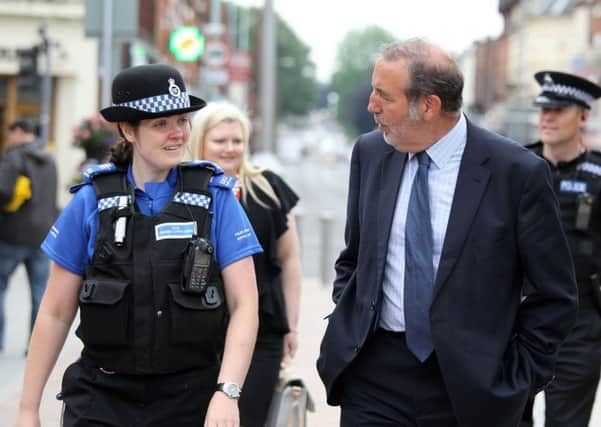Cuts and data changes blamed for huge rise in crime


Official data, just released, shows the total number of police-recorded offences across the county in the year to September 2017 shot up by 29 per cent from the previous 12 months, from 71,032 to 91,836. This was the biggest increase in the East Midlands.
However, the police say the rise was “inevitable” after financial restraints, which have led to fewer officers and fewer resources, and also the need to comply with national standards on the way the figures are compiled. All offences are now being recorded, including some being added retrospectively, whereas previously, some were reported but closed without being given a crime number.
Advertisement
Hide AdAdvertisement
Hide Ad“Given the circumstances, it is no surprise that crime is going up,” said the county’s police and crime commissioner, former Labour MP Paddy Tipping. “It’s a result of the perfect storm.
“Nationally, all forces have reported a rise in recorded crime. Nottinghamshire is not on its own.
“Some of it can be attributed to the long-running austerity measures, and some is the result of changes in recording rules. I am confident the way in which crimes are now counted meets the national standards, but this does lead to an increase in the number of crimes recorded.”
On the cutbacks, Mr Tipping said: “Nationally, £2.3 billion has been cut from police funding since 2010, which equates to a 25 per cent reduction. There are now 20,000 fewer police officers on our streets, which is the lowest level for 30 years.
Advertisement
Hide AdAdvertisement
Hide Ad“In Nottinghamshire, £54 million has been wiped off the force budget during austerity. Police numbers have fallen from around 2,500 to 1,841 today. The inevitable consequence is a rise in crime. Criminals are becoming more and more sophisticated, making crime investigation increasingly complex.
“That is why we have been lobbying the government, with some success, for more funding, and we have a programme of recruitment already under way, to take the number of officers up to about 2,000 over the next two years. These new officers will strengthen our neighbourhood policing teams, boosting the ability to gather local intelligence and prevent crime.”
Of 21 types of crime, an increase in offences was recorded in Nottinghamshire from the previous year in 16 of them, including one of 160 per cent in stalking and harassment, 142 per cent in public order offences and 60 per cent in sexual offences.
However, Deputy Chief Constable Rachel Barber said the rise in sexual offences reflected a national drive to encourage victims to report crimes against them, no matter when they took place.
Advertisement
Hide AdAdvertisement
Hide Ad“It is welcomed by the force because it shows that victims have confidence in the system,” she said. “ We are absolutely committed, despite current pressures on resources, to confront very serious, previously unreported offences, particularly those committed against children.”
DCC Barber insisted that the county was still a “very peaceful and safe place in which to live, work and socialise” and added: “The most important thing is that we are continuing to do the right thing for victims. We want to ensure the public get a service that is right for them.
“By ensuring that crimes are recorded accurately, we are putting victims first, providing the appropriate support and dealing with offenders effectively. This is reflected in our statistics.”
The only categories of crime that saw a drop in the number of offences were theft from the person, bicycle thefts and drug offences.
Advertisement
Hide AdAdvertisement
Hide AdThe chairman of the Nottinghamshire Police Federation, Dave Keen, agreed that the reduction in officer numbers was having a damaging effect.
He said: “We are not far off the police numbers of the 1980s. There are fewer opportunities for police officers to pro-actively patrol.”